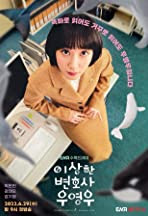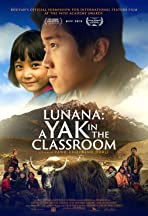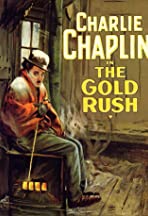For awhile there was a lot of news about Critical Race Theory without really explaining about its scope other than some whites were quite upset and others frustrated that the truth was being restricted. I am reminded of the controversy regarding American history. Too many Americans seem to overlook the role of slavery in their history and many more unaware that before the Europeans came there were already humans living on the land.
In truth, the America we know to-day is the result of much human conflict with much cultural interchange and genetic mixing. The makers of "Into the West" (2005) made a reasonable effort to capture the truth and there certainly are a lot of details. They came up with 9 hours of film boosted with a special features disc that gives further insight into the history and the film process.
The story starts in the east with a family of skilled workers. The main skill is as wheelwrights. Throughout the series we are reminded of the role of the wheel in colonizing. One son looking for something more for his life takes off toward the west. Soon he joins a group of men headed west. They keep pushing and encounter indigenous people, eventually he forms a relation with an indigenous woman.
Over time more family members move west and move through historical events. We are made aware of the Gold Rush, the building of the railroad, the Civil War, but most of all with conflicts. The story includes a free black family who encounter prejudice, but make it west. We also are given a glimpse of Chinese immigrants who also face severe discrimination, but are respected for being "reliable" workers who do intermingle with the indigenous with common interests.
The violence is prolific and spurred by ignorance, fear and hate. The Europeans feel they are civilized and look down upon the indigenous. At one time it is pointed out if the natives had intelligence they would have discovered the gold and made their fortune. Still some Europeans make sexual alliances with natives and there is some respect for each other's culture. Immigrants flowed from a Europe where their dreams and ambitions were stifled.
The Gold Rush illustrated the drive for an "easy" path to wealth drawing thousands from the east and even Europe. For some it was easy, but for the vast majority it was doomed. Others made their fortune off the gold diggers. The Chinese participated, but were prevented from prospering. The indigenous commented that the yellow metal made the whites crazy.
One aspect of the relationship that I did not notice was the role of disease. There was a brief scene regarding cholera among the whites. Indians were defeated by superior technology and overwhelming numbers, but a key element was disease that wiped a high percentage of the indigenous.
The indigenous were quick to adapt some aspects. As Europeans spread around North America, the Indians learned about horses and with their natural affinity with nature were able to find their own ways to harness the power. We don't hear about Easterns so much as Westerns have become part of the American culture. The indigenous had developed agriculture so that we now forget the contributions of corn, potatoes, tomatoes and maple syrup.
Towards the end of the series the topic of residential schools arose. The intention of some was to help the natives to adjust to the American culture. First though, children had to be separated from their parental influence and their language and culture suppressed. In Canada we now know the residential schools led to sexual abuse and premature deaths. The film didn't go that far, but it seems likely American indigenous suffered more extremely. There is more appreciation we are our background.
The wheel is one technology that allowed the Europeans to spread their culture and was almost as critical as the gun. The series concentrated on the Wheeler family and their ability to contribute wheels for wagons that carted families to seek their fortune out west. We take the wheel for granted. One scene shows an indigenous having bartered brought a wheeled cart back to show others who had mixed reactions.
Most battles resulted in the natives losing, but the Europeans became arrogant. Custer's Last Stand was labeled a massacre, but for awhile energized the natives. In the end Sitting Bull was killed and resistance died down, but never quite disappeared.
At the end we see older men explaining to grandchildren what they have been through. One phrase sums up the series "The only history man knows for certain is the small part he owns for himself." There are many ways of trying to understand history, but this series made an honest effort. Other versions do exist, some dishonest.
This was truly a massive project and it would be impossible in a short blog to do justice for all its contributors. Here are a few of the cast and crew that helped to make it successful.
Starting with Steven Spielberg who has been associated with many winning films. He is the executive producer. He is likely the most
famous and richest of Hollywood film makers as a director, producer and
writer. Winner of 3 Oscars plus a multitude of other awards. His
film credits include "E.T. the Extra Terrestrial" (1982), "Schindler's List" (1993), "Amistad" (1997), "Saving Private Ryan" (1998), "Munich" (1995), "Lincoln" (2012), "Bridge of Spies" (2015) and "The Post" (2017). Check http://www.therealjohndavidson.com/2016/05/bridge-of-spies.html
William Mastrosimone writer, co-executive producer. His last project was as writer and producer for ""Benedict Arnold: A Question of Honor" (2003).
Larry Rapaport, the producer has been producing movies since 1987.
Michelle Wong was a co-producer. She had formal training at the National Film Board of Canada. She was the first Chinese Canadian to direct a film in the history of the NFB.
Geoff Zanelli, the composer won a Prime Time Emmy for this effort.
The series used two cinematographers. Alan Caso, whose credits included "Six Feet Under" (2001-2003). William Wages has won 3 awards from the American Society of Cinematographers. The series was filmed mostly near Drumheller, Alberta, Canada.
Huge cast spread over several decades.
Tonantzin Carmelo played Thunder Heart Woman and won a few awards for that role.
Irene Bedard played Margaret Light Shines in four of the six episodes. She is probably most famous for being the voice of "Pocahantus" (1995). Other credits include "Smoke Signals" (1998) and "The Tree of Life" (2011)
John Terry in four episodes plays the older Jacob Wheeler and delivered the quote above.
Sheila Tousey played the older Thunder Heart Woman. Her film credits include "
Skinwalkers" (2002), "
A Thief of Time" (2003) and "
Coyote Waits" (2003).
Russell Means was the first national director of the American Indian Movement (AIM) and was heavily involved with the standoff with the U.S. government at Wounded Knee in 1973. His film credits include "The Last of the Mohicans" (1992).
Keith Carradine played the well intentioned Captain Pratt who helped start residential schools. Keith comes from a theatrical family and has performed in "Hair" and later as Will Rogers. He won a song Oscar for "I'm Easy." His film credits include: "McCabe & Mrs. Miller" (1971), "Nashville" (1975), "Coyote Waits" (2003), "Fargo" tv series (2014-15) and "The Power of the Dog" (2021).
David Paymer played Daniel Royer, a man who tried to stomp on the Ghost Dance. Among his film credits are "City Slickers" (1991), "Quiz Show" (1994), "Amistad" (1997), "The Hurricane" (1999) and "The Good Wife" (2009-2016). Also played supporting roles in dozens of tv. episodes.
Graham Greene played Conquering Bear. Born in the Six Nations Reserve, Ontario. He has been on stage at the Stratford Festival. His film credits include "Dances with Wolves" (1990), "The Green Mile" (1999), "Skins" (2002), "A Thief of Time" (2002), "Coyote Waits" (2002), "Wind River" (2017) and"Molly's Game" (2017). He has also appeared in dozens of supporting roles in tv. shows.
Wes Studi played Black Kettle. He spoke only Cherokee language until grade school. His film credits include "The Last of the Mohicans" (1992), "Geronimo: An American Legend" (1993), "Skinwalkers" (2002), "A Thief of Time" (2003),"Coyote Waits" (2003), "Avatar" and 2009).
As I write this, Russians are justifying their invasion of Ukraine with the idea that really the people are part of Russia. One culture self righteously trying to take over another that feels distinct. Man can be very arrogant thinking they are the center of the world, but nobody is and we are all inter-connected. If we use our intelligence we can all benefit by relating open mindedly with our fellow humans. "Into the West" does point to a better future if we can learn from the past and some are making the effort.
"The first mention of movies I have seen are bolded.








